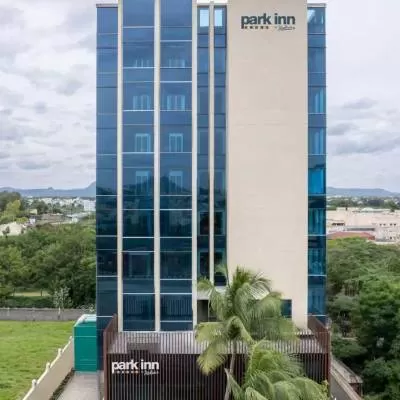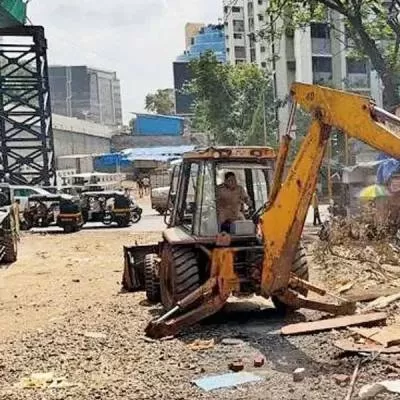Schedule a Call Back
Opinion: WFH to Boost Housing Market in City Peripheries
 With the rise of the work-from-home (WFH) trend, prospective homebuyers will see sense in shifting to city peripheries. Bigger homes, affordable prices and more open spaces in such areas will provide a distinct value proposition. The ongoing and planned infrastructure will boost the connectivity of peripherals with city centres. By ANAROCK PROPERTY CONSULTANTS RESEARCH
With the rise of the work-from-home (WFH) trend, prospective homebuyers will see sense in shifting to city peripheries. Bigger homes, affordable prices and more open spaces in such areas will provide a distinct value proposition. The ongoing and planned infrastructure will boost the connectivity of peripherals with city centres. By ANAROCK PROPERTY CONSULTANTS RESEARCH
The COVID-19 era presents a radically transformed real estate market, with preferences changing to accommodate new market realities. With work-from-home (WFH) a viable option even after the lockdown, many future homebuyers will shift to the peripheral areas for bigger homes and a better lifestyle at far more affordable prices.
The previous ?gold standard? of Indian housing ? the walk-to-work or short drive to work, by definition only in and around central corporate workplace hubs ? may lose some of its popularity among the middle class. Central locations would retain their allure for high net-worth individuals (HNIs) and C-suite buyers who can afford larger spaces there.
?The WFH concept may become the next fulcrum for homebuying decisions, where the walk-to-work option had held the longest sway,? said Anuj Puri, Chairman, ANAROCK Property Consultants. ?This, and millennials? new-found preference for buying rather than renting homes, are among the most prominent new residential real estate trends of the COVID-19 era. With the rise of the WFH culture, many may now prefer to live in more spacious and cost-effective homes in less central areas. While sufficient supply currently exists in most of the peripheries, this new demand will eventually also dictate fresh supply. Bigger homes, affordable prices and more generous open spaces in the peripheral areas will draw demand from tenants and buyers alike.?
Central vs Peripheral Areas: The Price Difference
Apart from changing real estate consumer preferences in a strengthening WFH environment, affordability is an enduring concern especially to the backdrop of a faltering economy and job loss and uncertainty. The peripheral areas are more affordable both from a rental and purchase perspective. ANAROCK has analysed the cost difference for India?s three largest economic dynamos ? Mumbai Metropolitan Region (MMR), National Capital Region (NCR) and Bengaluru.
Mumbai Metropolitan Region
In MMR, the average price for a standard 1,000 sq. ft. property in areas within city limits is approximately Rs 18.5 million, against INR 5.535 million in the peripheral areas, a 70 per cent cost difference. Micro-markets within city limits considered include Andheri, Vile Parle, Goregaon, Malad, Kandivali, Chembur, Wadala, Ghatkopar, Vikhroli, Powai, Mulund, etc. Peripheral areas include Kalyan, Bhiwandi, Dombivli, Mira Road, Vasai, Virar, Thane beyond Kasarvadavali and Owale Panvel, Ulwe and Taloja.
The average monthly rent for a standard two-bedroom, hall and kitchen home in areas within city limits is approximately Rs 45,800, against Rs 12,500 in the peripheries.

National Capital Region
In NCR, the average price for a standard 1,000 sq. ft. property in areas within city limits is approximately Rs 8.820 million, against Rs 3.750 million in the peripheral areas ? a 57 per cent cost difference. Micro-markets within city limits considered include Vaishali, Vasundhara, Indirapuram, Noida, Golf Course Extension Road, Sushant Lok, Dwarka Expressway, New Gurgaon and Dwarka. Peripheral areas include Ghaziabad-Rajnagar Extension, Faridabad, Greater Noida, Sohna, Bhiwadi and Bahadurgarh. The average monthly rent for a standard two-bedroom, hall and kitchen home in areas within city limits is approximately Rs 22,000, against Rs 9,500 in the peripheries.

Bengaluru
In Bengaluru, the average price for a standard 1,000 sq. ft. property in areas within city limits is approximately Rs 6.980 million, against Rs 4.350 million in the peripheral areas ? a 38 per cent cost difference. Micro-markets within city limits considered include Sarjapur Road, HSR Layout, Kudlu Gate, Singasandra, Hebbal, Jakkur, Yeswanthpur, Jalahalli, Whitefield, Marathahalli, KR Puram, JP Nagar, BTM, Jayanagar, Banashankari and Kodigehalli. Peripheral areas include Attibele, Electronic City, Yelahanka, Doddaballapura Road, Varthur, Budigere Cross, Kanakapura Road, Tumkur Road, Mysore Road, Kogilu Cross and International Airport Road (Bellary Road).
The average monthly rental for a standard two-bedroom, hall and kitchen home in areas within city limits is approximately Rs 18,500, against Rs 9,500 in the peripheries.

Rent vs Buy: What the Data Says
The rent vs. buy debate involves multiple highly subjective factors. However, since millennials are increasingly interested in homeownership post-COVID-19, it is worth calculating what works better for most in the current circumstances.
ANAROCK data reveals that the five-year rental outgo for tenants living within city limits is equivalent to 27-52 per cent of the total property cost in the peripheries of the top-3 cities (MMR, NCR and Bengaluru). Therefore, there is a strong rationale for homeownership in the peripheries. We have considered the total annual rental outgo for five years +3.5 per cent annual rental appreciation.
Also, the current home loan interest rates are at an all-time low, averaging around 7.15-7.8 per cent, with the possibility of more reduction as the Reserve Bank of India (RBI) recently cut repo rates even further.
In MMR, the average monthly rental outgo in city-limit areas is Rs 45,800. For five years, this equals nearly Rs 2.866 million (including standard rental escalation for this period). This is almost 52 per cent of the total average cost of a property in MMR?s peripheral areas.
In NCR, the average monthly rental outgo in city-limit areas is Rs 22,000. For five years, this equals nearly Rs 1.377 million (including standard rental escalation for this period). This is almost 37 per cent of the total average cost of a property in NCR?s peripheral areas.
In Bengaluru, the average monthly rental outgo in city-limit areas is Rs 18,500. For five years, this equals nearly INR 1.157 million, including standard rental escalation for this period. This is almost 27 per cent of the total average cost of a property in the peripheral areas.


Subscribe Now
Subscribe to our Newsletter & Stay updated
RECENT POSTS
Popular Tags
Folliow us











